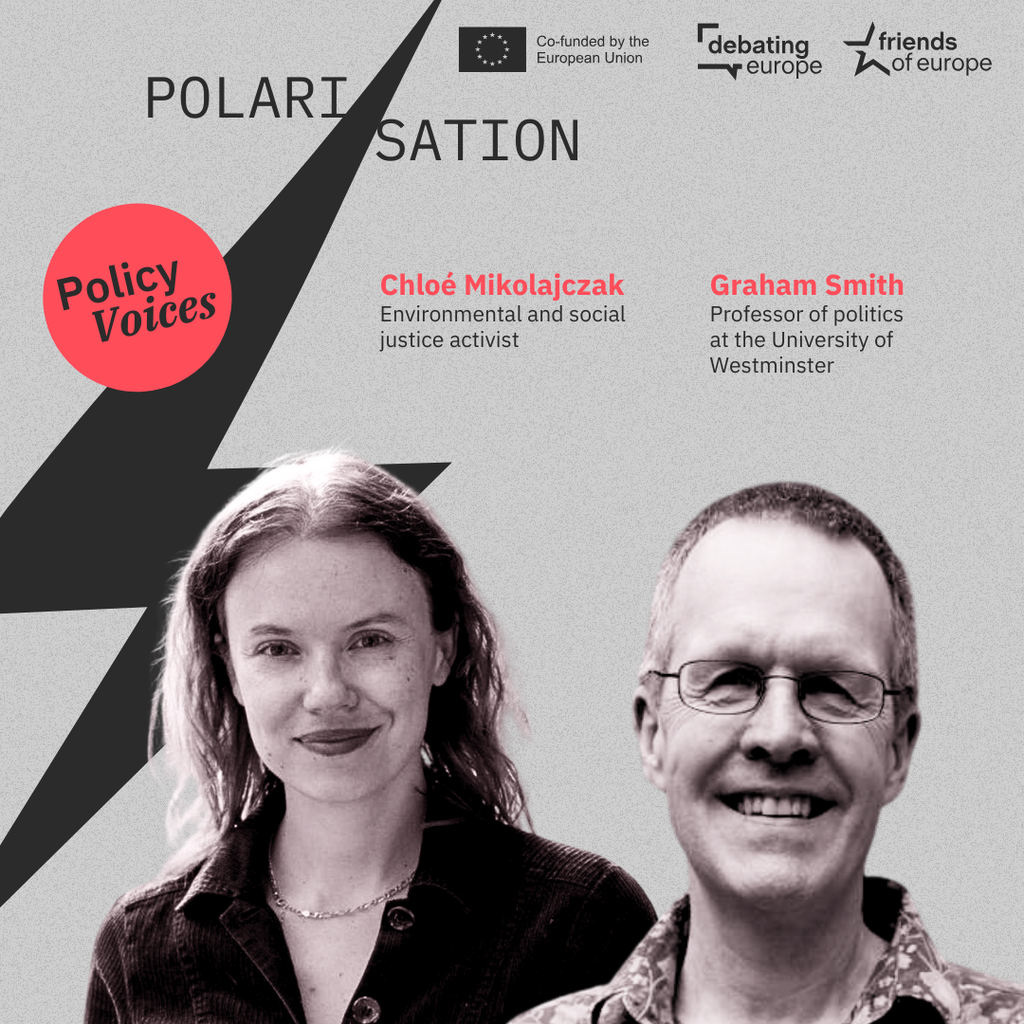Climate and Energy Summit 2025
Next event In person & livestreamed

- Area of Expertise
- Climate, Energy & Natural Resources
Climate, Energy & Natural Resources

Founder of Friends of Europe
Giles Merritt warns that COP26 in Glasgow and subsequent global summits will fail to deliver adequate responses until rich countries accept that only they have the resources to combat global warming.
Climate change is no longer a matter for debate. Now the question is how, by when and indeed whether global warming can be tackled at all. This summer’s floods and fires revealed the dangerous extent of our self-delusion.
We in Europe, along with rich countries elsewhere, have been looking down the wrong end of the telescope and focusing chiefly on our national efforts. But it’s simply not enough to ‘Go Green’ at home and hope that poorer countries will follow our example.
It remains to be seen whether this obvious but very uncomfortable truth will surface in Glasgow at the COP26 summit in November. The likelihood is slim, judging by the outcome of the near-deadlocked G20 environment ministers’ meeting in Naples in late July.
Rich countries are defeating their own best interests through their neglect of poor countries
They managed to agree, after an unscheduled extra day and a half of fierce wrangling, on a more ambitious global warming target of 1.5°C rather than 2.0°C. But that’s just another target to join all the others we’ve missed. Much more significantly, they failed to reach a deal on phasing out coal and fossil fuel subsidies. That proved totally impossible.
The European Commission’s latest package of proposed measures guarantees it star status in Glasgow, yet even if eventually adopted by EU members these will hardly come close to rolling back climate change. Its “Fit for 55” proposals earlier this summer, along with Washington’s renewed if still patchy support, may set a more positive tone for COP26, but can’t disguise the inadequacy of the proposed policy responses.
As with the selfish hoarding of Covid vaccines, rich countries are defeating their own best interests through their neglect of poor countries. Unless G20 and OECD countries take a more international approach to mitigating climate change, their efforts at home, although laudable, are laughably inadequate.
Under-development in poorer countries along with over-population will drag the whole world towards climate catastrophe.
A prime example of richer countries’ inability to ‘think big’ is the accelerating drive towards electric vehicles. It’s highly desirable, of course, to switch away from petrol and diesel engines, but it’s also futile when these older and more polluting vehicles are exported to poorer countries.
It is plainly wrong and short-sighted to encourage poorer countries to expand their carbon footprints
EU countries dominate the highly profitable trade in cars and trucks that no longer meet strict emissions standards. This is fuelling road transport growth worldwide, with the current 1.3 billion vehicles forecast to rise by 2030 to two billion. What is needed, therefore, is a breakthrough on clean tail-pipe technology and a global retro-fitting effort, but that doesn’t figure at all amongst Brussels’ ambitions.
It is in any case a comparatively minor problem when set against poorer countries’ energy needs. The further three billion people who will boost the global population to 10 billion before the end of this century are speeding climate change because energy is at the heart of global warming.
The world’s 50 or so richer nations tend to see the energy needs of the 150 poorer ones as juicy business opportunities rather than as a collective environmental problem. China is foremost in supplying cheaper coal-fired power stations in Africa, while Russia, the US and Australia head the list of hugely profitable coal exporters.
It is plainly wrong and short-sighted to encourage poorer countries to expand their carbon footprints in this way. It’s worse still to provide them with the means to do so. Renewable energy sources are wrongly seen as much more expensive, yet their plummeting costs offer rich countries the means to invest in poorer ones and earn both an economic and environmental dividend. It’s time policymakers began to think far more constructively, and for electorates to punish governments that do not.
This is the first of three articles by the Founder of Friends of Europe on the radical re-thinking needed to confront the challenges of climate change. The second article in this series will be published on 21 September and the concluding part on 5 October.
You may also like…
Next event In person & livestreamed

Past event In person & livestreamed

Past event In person & livestreamed

Past event In person & Livestreamed





Stay informed
We use cookies and similar technologies to adjust your preferences, analyze traffic and measure the effectiveness of our campaigns. Learn more about our privacy policy.